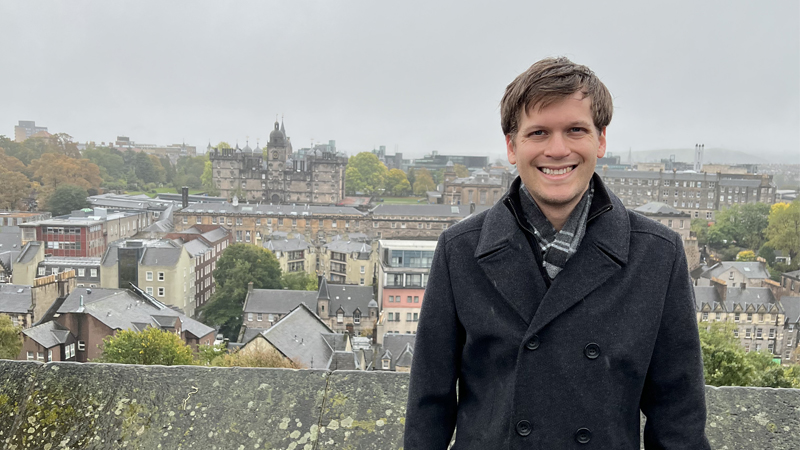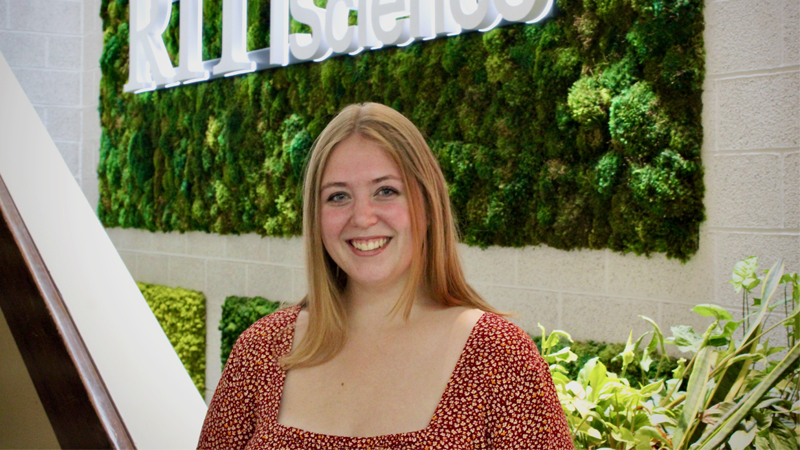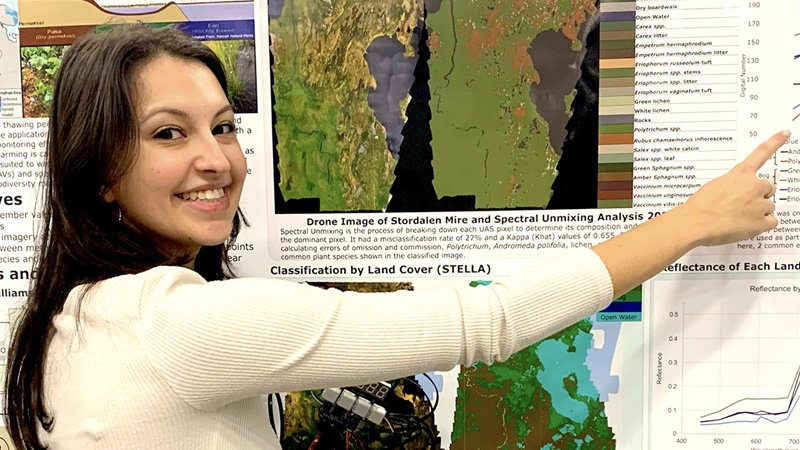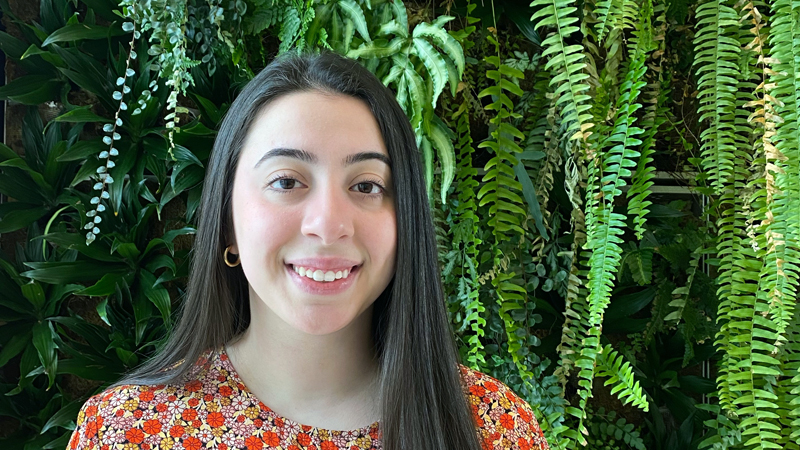From RIT Labs to Life-Saving Cancer Research at AstraZeneca
Dylan Weil ‘15 utilizes his RIT biotechnology lab skills to conduct life-saving cancer immunotherapy research at AstraZeneca.

As a scientist at AstraZeneca, Dylan Weil ‘15 applies the biotechnology skills and knowledge he gained at RIT in his work developing in-vitro drug potency assays for experimental cancer immunotherapies. "If you want to attend a challenging university that provides the best odds of breaking into a scientific industry as early as possible, RIT is hands-down one of the best choices out there," Weil affirms. "To this day, I incorporate what I learned from my time at RIT directly into my work."
What stood out to Dylan most about RIT's biotechnology and molecular bioscience BS program was the emphasis on cell and molecular biology and the extensive laboratory courses available. "The program impressed me with the advanced biology lab courses students take that many biology-focused programs do not have at the undergraduate level," he says. "I was also drawn to the RIT focus on preparing aspiring scientists for industry as well as academia, and the plethora of opportunities for participating in independent scientific research and internships."
During his time at RIT, courses like Advanced Immunology and Molecular Biology played a pivotal role in shaping Dylan's career path. "These courses sparked my interest in immunology and solidified my passion for pursuing a career in vaccine and immunotherapy research," he said. Dylan also credits an independent research experience under the mentorship of the late Dr. Irene Evans which he says gave him an edge on his applications for fellowships and internships.
"What really makes RIT stand out is the explicit focus on career-oriented education," he explains. "Internships, fellowships, co-ops, and other experiential opportunities like research are ingrained into every facet of RIT academic culture—even in majors where such opportunities aren't a degree requirement."
It was ultimately Dylan’s summer internship experience that landed him an exciting full-time job offer in the pharmaceutical industry before graduation. Dylan began working in preclinical drug discovery research for a tuberculosis vaccine development organization in the DC area. Not long into the job, a company merger shifted his position from early-stage vaccine research to clinical-stage vaccine development. Although he was initially disappointed at the switch, he started exploring an area of pharmaceutical science that led him to his current position at AstraZeneca.
Dylan gained experience at his first company supporting the development of robust vaccine manufacturing processes that can produce large quantities of high-quality clinical material suitable for clinical trials. These processes are critically important to ensure consistent quality of all vaccine products from development through execution. That knowledge led him to his role at AstraZeneca where he works on an antibody potency assay development team involved in the clinical-stage development of cancer immunotherapies. “Over time, I became familiar with the complexities of developing clinical-scale and commercial-scale antibody manufacturing processes and formulations; the scientific work that goes into determining the properties of antibodies that are critical for controlling product quality; global regulatory expectations around antibody product quality; and the roles that characterizations of antibody potency play in all of these endeavors.”
After a few years of working in the field, Dylan began a part-time MS program in biotechnology at Johns Hopkins with a primary focus on bioinformatics. “I was interested in exploring how cutting-edge bioinformatics approaches, which are typically used in earlier-stage drug research, could potentially be integrated into clinical-stage drug development and assay development.”
Dylan has been able to integrate this deeper bioinformatics knowledge into his current work today. “At AstraZeneca, I’ve applied this knowledge to launch collaborations between my potency assay development team and our data science teams to create new statistical tools for automating complex data analyses. I am also exploring ways to integrate modern statistical approaches into our potency assay development processes. In addition, my programming skills also led to opportunities like my current training in programming laboratory robotics platforms.
Dylan advises current students to take advantage of the resources offered by RIT, emphasizing the importance of gaining professional experience through fellowships, internships, and co-ops. "The job market can be challenging for recent graduates, so it’s important to have as much experience as possible before graduating." He also emphasizes the importance of being well-rounded, and advises students to develop a range of interests and skills. Dylan underscores the value of paying attention to liberal arts and humanities courses such as philosophy, literature, sociology, and anthropology. "While they may not be directly related to your major, they will enhance scientific writing and communication skills and facilitate critical examination of the broader impacts of one's work."
Furthermore, Dylan highlights the increasing significance of data science, statistics, and programming within the biotechnology industry. "Even for those pursuing a lab-focused scientific career, acquiring experience in these areas can heighten your desirability to biotech employers and inject greater interest into your work."
By embracing the opportunities at RIT, students can position themselves for success in the dynamic and rapidly evolving biotechnology industry. Dylan's story exemplifies how RIT's hands-on curriculum and emphasis on practical work experience can launch students into great careers in this cutting-edge field.












